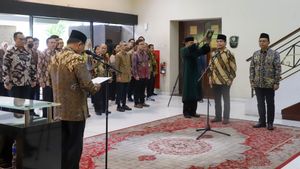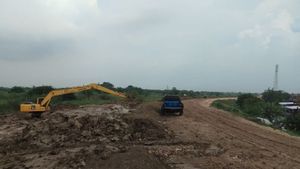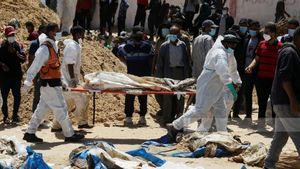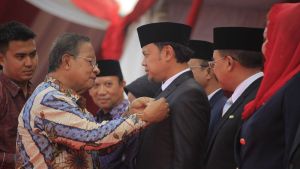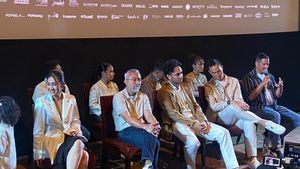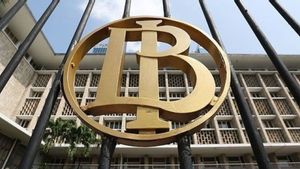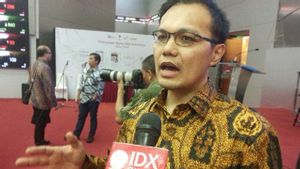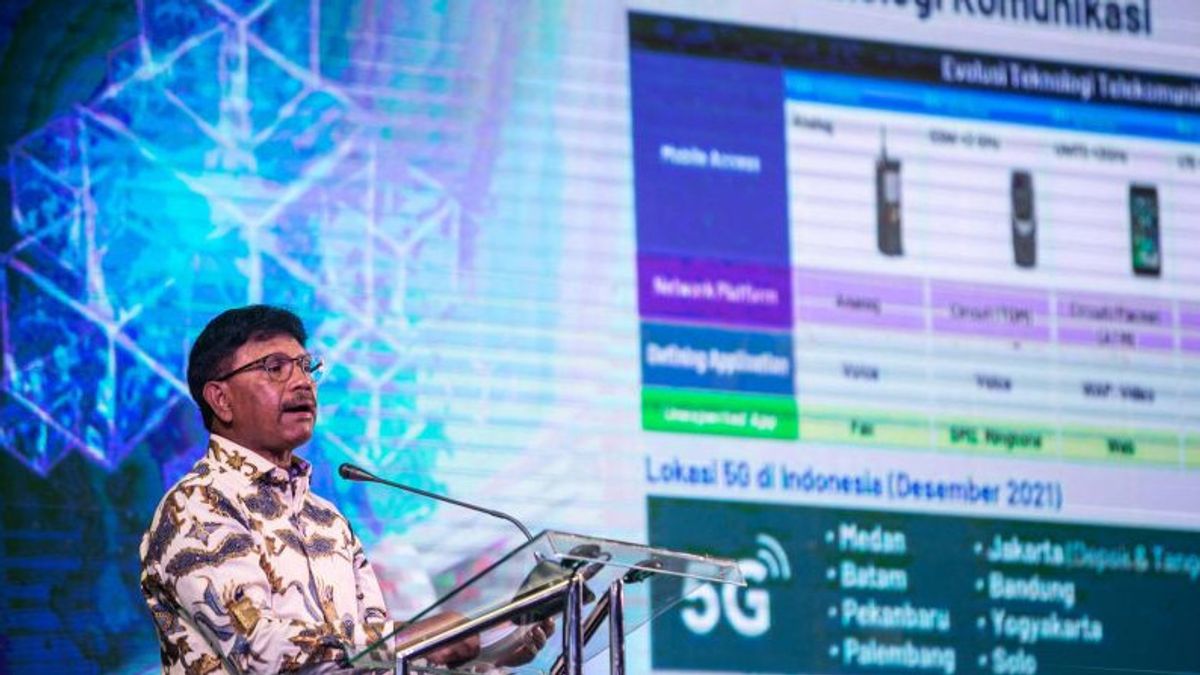
YOGYAKARTA - The second meeting of the G20 Digital Economy Working Group (DEWG) which took place in Yogyakarta focused on discussing connectivity issues and post-COVID-19 recovery.
"The second Digital Economy Working Group went smoothly, well, and focused. Complementary understanding from all delegates and expert partners," said Minister of Communication and Information, Johnny G. Plate, during a DEWG press conference in Yogyakarta, Wednesday 18 May.
The priority issue of digital connectivity is broken down into five subtopics. First, DEWG encourages the issue of digital connectivity and recovery after the COVID-19 pandemic is centered on human interests, and people-centered connectivity.
This discussion departs from the experience during the pandemic that human activities depend on the digital ecosystem, for example, distance learning, and medical consultation from a distance (telemedicine) to an economy that is largely supported by digital connectivity.
"Departing from this need, DEWG discussed a common understanding of digital connectivity by placing the community as the main focus of developing digital connectivity," said Johnny.
This forum sees that the post-COVID-19 economic recovery is supported by the use of technology, especially in solving community problems and empowering them.
The second subtopic relates to cyber security that can support business, digital security as a key enabler to supporting the business community. The development of digital technology is like a double-edged sword, in addition to having a positive impact, there are also challenges.
The real challenge given by digital connectivity is in the form of cyber security risks that lurk internet users. This risk is especially felt for business actors along with the development of the digital economy.
DEWG wants to support the sustainability of digital businesses in the future in terms of cyber security. Delegations of G20 member countries who were present at the second DEWG session shared experiences about digital security and safety practices.
The third discussion at the second DEWG session in Yogyakarta was the G20 Digital Innovation Network as a continuation of the Digital Innovation Lead at the G20 Italy Presidency 2021.
This activity is a forum for digital innovation players such as startups, venture capital, corporations, and governments.
"We hope this event will continue in the next G20 Presidency," said Johnny.
The fourth subtopic is a discussion of the Digital Transformation Expo. According to Johnny, DEWG welcomed this event.
This exhibition will showcase the achievements of G20 member countries on digital transformation policies, strategies, and innovations.
Indonesia, as the host of this year's G20, hopes that the concept of this event will receive a positive and enthusiastic response from the G20 Presidency next year.
The last discussion relates to the International Telecommunication Union (ITU) initiative for smart villages and islands, ITU's Smart Village, and Smart Island Initiative. Indonesia provides support for the initiative.
"This support shows Indonesia's commitment to utilizing the role of the G20 to solve various issues in the global community," said Johnny.
DEWG encourages solidarity from both member and non-G20 member countries, especially island developing countries, in utilizing digital transformation.
The results of the discussion on digital connectivity issues and post-COVID-19 recovery at the second DEWG meeting will be processed into a draft Bali Package or Digital Ministerial Declaration.
This declaration will reflect the G20's commitment to achieving a resilient recovery through working together for an inclusive, empowered and sustainable digital transformation.
Indonesia Head of DEWG
The Digital Economy Working Group Forum in Yogyakarta was attended directly by delegates from G20 member countries, including delegates from the United States, Argentina, Australia, Brazil, France, Germany, United Kingdom, India, Italy, Japan, South Korea, Saudi Arabia, Turkey and European Union.
Indonesia has the honor of being the G20 Presidency or this year's host. In addition to hosting the G20, Indonesia through the Ministry of Communication and Informatics is also the supervisor of the Digital Economy Working Group, a forum that is an improvement of the Digital Economy Task Force.
The Secretary-General of the Ministry of Communications and Information Technology, Mira Tayyiba, acts as the chair of the DEWG G20 forum. Meanwhile, the ministry's spokesperson, Dedy Permadi, became the Alternate Chair of the DEWG G20.
This Digital Economy Working Group encourages discussion of three priority issues, namely connectivity and post-COVID-19 recovery; digital literacy and skills; and cross-border data flows.
Each DEWG session will focus on discussing one priority issue. The third meeting, which is scheduled to take place in Labuan Bajo, East Nusa Tenggara, on 20-21 July, will discuss the issue of digital literacy and skills.
Contacted separately, the Director-General of Information and Public Communication, Ministry of Communication and Informatics, Usman Kansong, said that the DEWG forum is expected to result in collaboration between developed countries and developing countries in terms of digital connectivity.
"We hope that there will be concrete steps from the Bali Package, especially for the issue of digital connectivity," said Usman
The G20 is a strategic forum to discuss digital connectivity issues because G20 member countries control 79 percent of world trade and 85 percent of the world economy. They also make up 65 percent of the world's population.
The fourth Digital Economy Working Group will be held in Bali from 29 to 30 August. The series of Indonesian G20 Presidencies will be closed with a Leader Summit, in Bali on 29-30 November.
The G20 summit will be attended by leaders of G20 member countries.
The English, Chinese, Japanese, Arabic, and French versions are automatically generated by the AI. So there may still be inaccuracies in translating, please always see Indonesian as our main language. (system supported by DigitalSiber.id)


